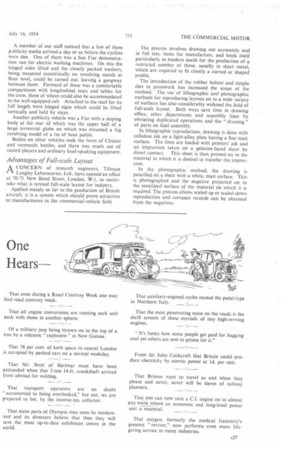One Hears
Page 29

If you've noticed an error in this article please click here to report it so we can fix it.
That even during a Road Courtesy Week one may find road courtesy weak.
That oil engine conversions are running neck and neck with those in another sphere.
Of a military jeep being thrown on to the top of a tree by a volcanic " explosion" in New Guinea.
That 76 per cent. of kerb space in central London is occupied by parked cars on a normal weekday.
That Mr. Brett of Barimar must have been astounded when that 5-ton 14-ft. crankshaft arrived from abroad for welding.
That transport operators are no doubt " accustomed to being overlooked," but not, we are prepared to bet, by the income-tax collector.
That some parts of Olympia may soon be modernzed and its directors believe that then they will lave the most up-to-date exhibition centre in the world. That auxiliary-engined cycles exceed the pedal-type in Northern Italy.
That the most penetrating noise on the roads is the shrill scream of these myriads of tiny high-revving engines.
" It's funny how some people get paid for bagging coal yet others are sent to prison for it."
From Sir John Cockcroft that Britain could produce electricity by atomic power at id. per unit.
That Britons want to travel as and when they please and never, never will be slaves of railway planners.
That one can now turn a C.I. engine on to almost any work where an economic and long-lived power unit is essential.
That oxygen, formerly the medical fraternity's greatest "reviver," now performs even more lifegiving service in many industries.




























































































